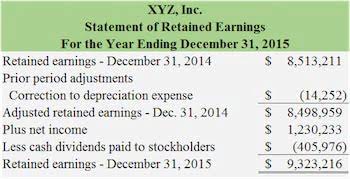
When using the mileage rate, you don’t include any other expenses—such as oil changes or routine maintenance and repairs. The only additional vehicle costs you can deduct are parking fees and tolls. As a tax deductible expense, business meals have a long and colorful history. There’s a lot of debate among business owners (and their accountants) about what constitutes a business meal. The Tax Cuts and Jobs Act (TCJA) of 2017 only further muddied the waters. The cost to market or advertise your therapy practice is tax deductible.

Keep reconciled books

One of its key advantages is its simplicity and user-friendly interface, which allows therapists who may not have extensive accounting knowledge to manage their finances effectively. Make sure to open a separate account for your private practice and put all expenses for the business through that account. If you use your name as your business name- you might even qualify for a free checking account.
Tools and Strategies to Enhance Profit Margins
You can typically deduct expenses necessary to run your therapy practice. Attending a counseling conference, for example, could be a tax write-off. So could subscriptions to psychology journals or a laptop you Partnership Accounting use solely for work.

Grow Your Therapy Practice with Expert Tax Advice
A separate bank account and credit card will simplify your bookkeeping and prevent unnecessary errors. When you’re a self-employed therapist, every hour of your workweek is an hour you could spend earning income by treating clients (or pursuing alternative income streams). In order to understand the cost of doing your own bookkeeping, apply an hourly rate. Every time your therapy practice earns money, it’s recorded on the books and categorized as revenue. Every time your practice spends money, it’s recorded on the books, and categorized according to what type of expense it is. To understand the financial health of your practice, it’s important to regularly review key financial reports.
Today, there are so many great tools and resources out there that it’s a wonder why anyone is still trying to keep paper records. The next important conversation is regarding the separation of records, spending, tax deductions, and other financial elements. That includes using your debit card for business purchases– upgrade to a business card as soon as possible or at least open a separate business account with its own linked debit card. Even with an understanding of HIPAA regulations, identifying potential breaches may not always be straightforward. For example, the use of online accounting software for managing patient payments and financial records introduces potential security risks that may not be immediately apparent to many therapists. The subscription costs for therapy practice management software are tax-deductible.
- If you use Square, Stripe, or similar services to collect payments from clients, those fees are 100% tax deductible.
- You’ll also want to estimate your tax liability and set aside money regularly to cover your tax bill to help avoid surprises come tax time.
- QuickBooks fits seamlessly into the broader context of accounting services, offering tailored solutions for therapy practices, including tax filings, financial planning, and budgeting.
- The best way to ensure you’re taking advantage of every possible tax deduction is to have a comprehensive bookkeeping and accounting solution in place.
- Get free articles, guides, and tools developed by our experts to help you understand and manage your private practice finances.
When pressed for time, it’s tempting to put bookkeeping on the back burner. Fortunately, there are some best practices you can implement to make the record-keeping process more manageable while saving you time, money, and sanity. Many accounting software programs, like Sage, claim to protect your client’s data and ensure proper accounting of your practice. Others, like QuickBooks Online, a highly-secure platform, are transparent in that they don’t comply with HIPAA standards. A general ledger, a spreadsheet, bookkeeping software, or a mobile app are the best ways to organize business expenses. Be sure to keep your receipts in case of an audit, as you will need proof of purchases.

A tax professional can guide you on which option is most favorable for you and keep you up to date with any changes. For example, a rise in the standard deduction is a significant tax change for 2024. General liability insurance protects your business against claims of bodily harm or property damage. You can claim the cost of general liability premiums on your tax return. Make sure you document all the payments you unearned revenue make toward any insurance policy as this information is crucial when filing your taxes. Billing software companies typically collect a percentage of your revenue when clients pay by credit card.
Pay those quarterly taxes
- Partnering with a Certified Public Accountant (CPA) or a full-service bookkeeping firm, such as Gemini, can provide significant long-term benefits.
- This process helps you track expenses, income, and other financial activities efficiently.
- As a therapist, your primary focus is on helping your clients overcome challenges and lead better lives.
- When you sign up for Heard, our team handles your bookkeeping, tax prep, and even tax filing for you.
- A sound bookkeeping system provides up-to-date information on your practice’s earnings and expenditures.
- Tracking your income and your expenses as a business owner gives you a front-row view of how you and/or your team have managed your money.
- Make sure you give your books and billing the attention it deserves and invest in the right tools to streamline your bookkeeping process, whether you do it yourself or hire a pro.
As a healthcare provider, managing patient payments is just one facet of your financial operations. We’ll verify that your books are a 1-to-1 mirror of the transactions as listed by your bank. We keep track of your daily income & expenses in a cutting edge software tool to ensure your business is right where it should be. For example, let’s take a therapist who drove a total of 5,000 miles last year. 2,000 of those miles were to give therapy sessions out of the office or to attend conferences. In this case, the therapist could deduct 40% of all of the vehicle expenses for the year.
- Using a chart of accounts geared towards therapists ensures that your financial data is organized and easy to manage.
- Which means, rather than pay taxes on your private practice revenue, you first subtract a majority of your expenses and pay your taxes from that amount of money instead.
- Ensure all your company details are complete and accurate in QuickBooks Online.
- Additionally, if you’re working with a business coach, financial advisor, or a similar professional, showing up with your numbers will help them help you more effectively.
Done-for-you monthly bookkeeping and financial reports
Try to keep track of everything, no matter how big or small the expense, as you’ll have to account for them when you file taxes. Just like your therapy patients need your professional services to live well, your bookkeeping needs regular updates to keep your business financially healthy. Falling behind on your bookkeeping means you’ll constantly find yourself rushing to catch up and file your taxes on time. You—or a professional bookkeeper or accountant—use this information to generate financial reports. A profit and loss report (P&L) tells you how much you spent and earned over a particular period, bookkeeping for therapists and how much you retained as profit. A balance sheet tells you how much money you have, and in which accounts.
